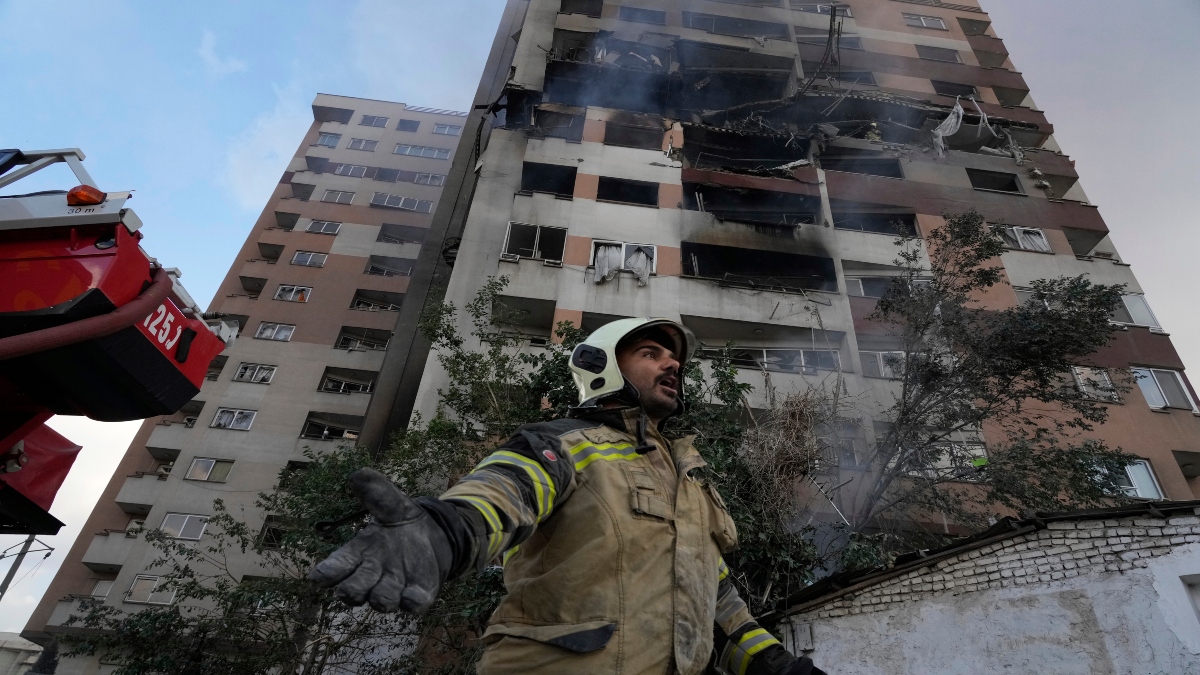More than 12 hours after a major wave of Israeli strikes targeted sites across Iran, several explosions were reported in Tehran and nearby areas on Friday evening, according to Iranian state media.
Explosions were reported in western Tehran province, including the cities of Shahriar and Malard, as well as the Chitgar neighborhood of Tehran, according to state news agency IRNA.
Separately, the Mehr news agency reported a blast in Pakdasht, southeast of the capital.
According to an Associated Press report, civilian witnesses heard what sounded like loud explosions in neighborhoods in the capital’s east, west and centre, while an AP journalist in the city’s north also heard a blast.
Iranian air defences also shot down an Israeli drone in the vicinity of the country’s Fordow nuclear facility, Iranian media reported.
Earlier today, Iranian media reported two explosions heard in the area of the nuclear site.
Meanwhile, Israeli Prime Minister Benjamin Netanyahu said on Friday that Israel coordinated with the United States “in advance” of the attack on Iran, and the Trump administration “knew about the strike.”
“We have told them in advance, they knew about the strike,” CNN quoted Netanyahu as saying in a pre-recorded video released Friday afternoon. “What they will do now, I leave it to President Trump, he makes his own decisions independently.”
“I will not speak for him. He speaks very persuasively and very firmly and said Iran should not have nuclear weapons, they should not have enrichment capabilities,” Netanyahu added.
Impact Shorts
More ShortsSecretary of State Marco Rubio had on Thursday said that there was no US involvement or assistance in the strikes.
On Friday, Israel launched a blistering attack on the heart of Iran’s nuclear and military structure, deploying warplanes and drones smuggled into the country to target key facilities and kill top generals and scientists - a barrage it said was necessary before its adversary got any closer to building an atomic weapon.
The ongoing military and intelligence operation raised the potential for all-out war between the countries and propelled the region, already on edge, into even greater upheaval.
Iran quickly retaliated by sending a swarm of drones at Israel, and Supreme Leader Ayatollah Ali Khamenei warned of “severe punishment.” Iran had been censured by the UN’s atomic watchdog a day earlier for not complying with obligations meant to prevent it from developing a nuclear weapon.
Israel had long threatened such a strike, and successive American administrations had sought to prevent it, fearing it would ignite a wider conflict across the Middle East and possibly be ineffective at destroying Iran’s dispersed and hardened nuclear program.
But a confluence of developments triggered by Hamas’ Oct. 7, 2023, attack — plus the reelection of U.S. President Donald Trump — created the conditions that allowed Israel to finally follow through on its threats.
Israel had told the Trump administration that the large-scale attacks were coming, officials in the US and Israel said on condition of anonymity to describe private diplomatic discussions.
With inputs from agencies
)